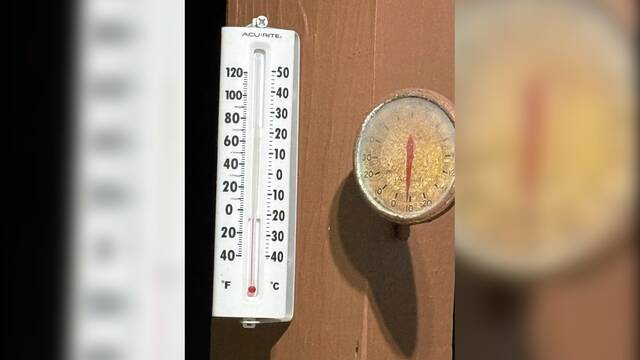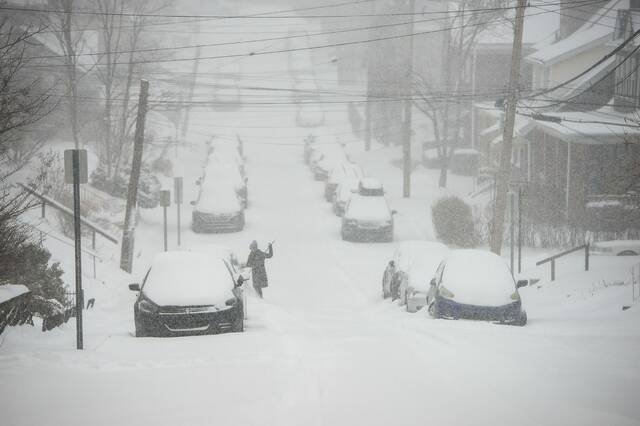With flu season rapidly approaching and covid-19 still spreading, health experts say it’s imperative — and safe — to get a flu shot this year.
Dr. Marc Itskowitz, an internal medicine physician with Allegheny Health Network, said he recommends the flu vaccine this and every year.
“It gives the immune system an additional tool so that if it does see the flu virus, it’ll have the ability to generate protective antibodies,” Itskowitz said. “We acknowledge that the flu vaccine is not 100% effective — but even patients who do get the flu after getting the flu vaccine are much more likely to have a mild illness. The risk of hospitalization and death decrease significantly.”
Keeping people out of the hospital is particularly important in the midst of the coronavirus pandemic, said Dr. Richard Zimmerman, professor of family medicine and public health at the University of Pittsburgh. He said a spike in flu hospitalizations and covid-19 hospitalizations at the same time could be overwhelming for hospital systems.
Because influenza and covid-19 have similar symptoms, increased flu cases could also lead to more people seeking covid-19 tests, Itskowitz said. He said that it could cause increased anxiety as people await test results to determine whether they have coronavirus or influenza.
And it’s actually possible to have both, Zimmerman said.
“There is data from China that show co-infection with flu and covid shows worse outcomes,” Zimmerman said. “The combination of flu and covid can be very nasty.”
Dr. Amesh Adalja, a Pittsburgh-based infectious disease and critical care physician and senior scholar at the Johns Hopkins Center for Health Security, said the fewer instances of the flu, the better — particularly during the covid-19 pandemic.
“You have to remember that influenza in the fall is going to be competing with covid for the same hospital beds, the same personal protective equipment,” he said. “It’s going to be confusing for clinicians because there’s so much overlap between the symptoms. The less flu we have, the better it will be from all aspects — from a hospital capacity aspect, a clinician’s aspect.”
The best way to combat these issues is with flu vaccines. Itskowitz said everyone should be vaccinated for influenza. He said “the very young and the very old” and those with chronic conditions are the most at-risk demographics when it comes to the flu.
Though some people may be wary of visiting a doctor’s office in the midst of the coronavirus pandemic, Itskowitz assured patients that it’s safe to go for a flu shot. Doctor’s offices are taking extra precautions, like limiting contact points and mandating masks and social distancing.
People can also get the vaccine at flu shot clinics or pharmacies.
With the right precautions, Adalja said, visiting a doctor’s office, pharmacy or flu shot clinic should come with minimal risk. Adalja also said he anticipates drive-through-style flu shot clinics, where people can simply roll down their car window for the vaccine.
People shouldn’t be afraid of the vaccine itself, Itskowitz said. He said the most common side effect is soreness at the injection site, but serious side effects are rare.
“It’s generally a very safe vaccine,” he said.
The prime time to get a flu shot is September or October, Zimmerman said.
He doesn’t recommend getting them any earlier, because the vaccine can become gradually less effective, leaving people poorly protected by the end of the season if they receive the vaccine too early.
“For many of us more mature adults, the protection from vaccine may wane 6% a month,” Zimmerman said.
If people wait too long, he warned, they may not be protected for the onset of flu season, as it takes about two weeks for the vaccine to become fully effective.
But it’s still better to get the flu shot late than to skip it altogether, Itskowitz said.
“If you go back to February and even early March, we had a significant surge of influenza in our area, a late-season peak of the flu,” he said. “So that’s a reason people should continue to get vaccinated through flu season. We know in some seasons, the flu virus circulates into the spring.”
Though the covid-19 pandemic has spurred widespread shortages of certain items in grocery stores, health experts said there’s no indication that flu vaccines will be in short supply.
Zimmerman said manufacturers have already anticipated an increase in demand this year — and therefore will prepare accordingly.
“The flu vaccine is already being made. It’s a process that starts months before flu season,” Adalja said, noting that there haven’t been any manufacturing or supply chain issues yet.
“We really don’t know how many people ultimately will get a flu shot,” Itskowitz said. “In a typical year, only 40% of eligible Americans get the flu shot. I anticipate there will be a higher demand this year, but I have not heard of any manufacturing shortages. I would anticipate we have enough flu vaccines for people who want it.”
In addition to getting a flu vaccine, Itskowitz and Zimmerman encouraged hand hygiene to combat the flu — as well as covid-19 and other illnesses.








